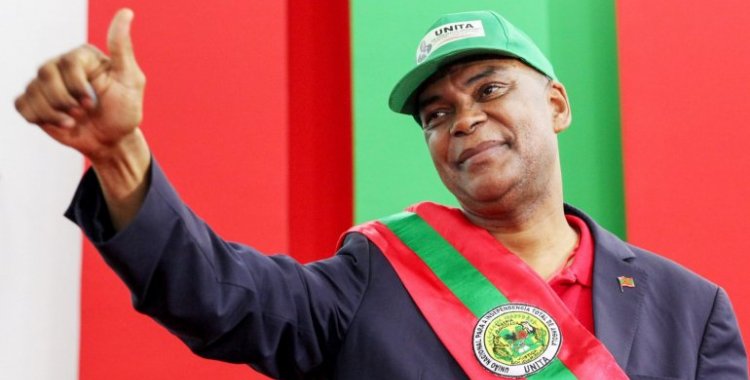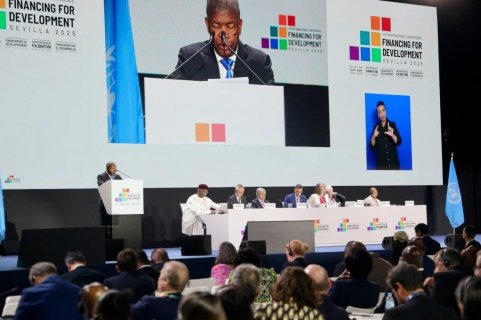The announcement was made this Friday by the president of UNITA, Adalberto da Costa Júnior, who heads a list which also includes members of other political forces, such as Abel Chivukuvuku, of the political project PRA-JA Servir Angola (in number two, in running for vice-president) or Justino Pinto de Andrade, from the Democratic Bloc, who present themselves together on a platform called Frente Patriótica Unida.
In a meeting with journalists in Luanda, Adalberto da Costa Júnior indicated that the electoral manifesto for the 24th of August will be launched on the 23rd and intends to respond to structural aspects of governance.
Among the commitments he assumes if he is elected head of state in the next elections are the constitutional revision, with the possibility of direct election of the President of the Republic, the promise to hold local elections a year later and autonomy for the province of Cabinda.
The manifesto, he said, will be about 70 pages long, and quite fully summarizes the government program that UNITA does not intend to reveal in full so as not to be copied by opponents of the ruling party, MPLA.
At this Friday's meeting, which was also attended by the president of the Democratic Bloc, Filomeno Vieira Lopes, party leaders reviewed a series of illegalities and abuses in the electoral process that they say they are witnessing, focusing on the unequal treatment of Angolan public media and criticism of the judiciary and the National Electoral Commission (CNE).
Regarding the format of UNITA lists, Adalberto da Costa Júnior stressed that it corresponds to the political expression of the FPU, bringing together members from other parties and civil society, an initiative that "was not simple", but "was permanently supported by the board" of the party founded by Jonas Savimbi.
He again criticized the organs of the judiciary, namely the Constitutional Court (TC), and mocked the validation of parties such as P-Njango and the Humanist Party of Angola, on the eve of the elections, accusing the TC of "adapting to the of the regime's party", such as the CNE, whose president has been taking decisions without calling the plenary.
On the other hand, he blamed the President of the Republic for the "radicalism" in the coverage of the public press and pointed out that UNITA's proposals involve the reduction of its powers, leaving the government of Angola to be "unipersonal".
"For these and other reasons, Angola increasingly lacks a new leadership", he stressed, showing confidence in the electoral victory, despite the inequality in access to financing for the campaign, since the money for the MPLA campaign "comes from the public treasury", he denounced.
Abel Chivukuvuku, former leader of UNITA, former president of the CASA-CE coalition (which is now running for elections under new leadership) and founder of the political project PRA-JA Servir Angola, which was successively derailed by the TC, guarantees that he is prepared to be number two.
"There was a perception that Abel did not accept being number two or number three, but if the proposal is to serve the country, he even had the capacity to be number seven or eight", he highlighted, stressing that the most important thing is the common will of the team. serve the country and that complement each other.
The politician also considered that there are conditions for alternation in a "mature" context in relation to previous electoral acts and praised Adalberto da Costa Júnior for having broken "with the paradigm of traditional UNITA leaderships" and for promoting the union of the party, contrary to the his opponent João Lourenço, president of the MPLA and President of the Republic, who divided the party that has governed Angola since independence.
"Our bet is to transmit serenity to the country and transmit confidence to the citizens that the alternation is something positive", he said, adding that "life does not end because you left the government".
For Filomeno Vieira Lopes, the FPU represents "a solution" at the height of the crisis that Angola is experiencing, with the main objective of opposition parties being "to preserve peace and transform it into social peace", calling for transparency in the electoral process.
"There is a predisposition of the regime in not accepting the electoral results, we count on the Angolans, all of us together to put things in order", he said.
In the elections, in which UNITA intends to dethrone the Popular Movement for the Liberation of Angola (MPLA), which has governed Angola since 1975, seven political parties and a coalition are running.
Since the 2010 Constitution came into force, presidential elections have not been held, with the President and Vice-President of Angola being the heads of the list of the most voted party in the legislative elections.
In the last election, in 2017, the MPLA won the majority with 61.07 percent of the votes and 150 deputies, and UNITA won 26.67 percent of the votes and 51 deputies.







